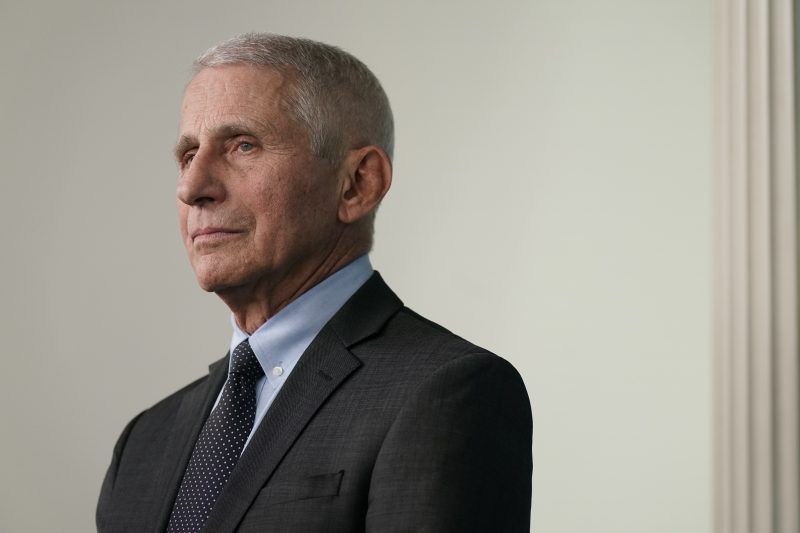
Fauci slams ‘lowlife’ trolls harassing his wife, children over covid
The nation’s leading infectious-disease expert, Anthony S. Fauci — a public face of the government’s response to the coronavirus pandemic — shared the toll it takes on his family as his wife and children face abuse from “lowlife” trolls, he said.
Fauci, 81, who has led the National Institute of Allergy and Infectious Diseases since 1984 and will step down later this month after more than a half-century in public service, told the BBC in an interview released on Friday that he faces “a lot of personal attacks,” but had trained himself to “compartmentalize” them and maintained good security protection.
The abuse toward his family was more perturbing, he said, even as at least two people were in jail in the United States for “credible” attempts on his life.
“These people who troll about, they harass my wife and my children … I really think it’s so cowardly for people to harass people who are completely uninvolved in this,” he said, calling it “a manifestation of the lowlife that does that.”
“I try my best not to let that distract me,” he continued, noting that his focus remained on his “responsibility to the American public.”
Outrage over the government’s attempts to prevent the spread of the coronavirus, which has killed more than a million people in the United States, turned Fauci into a polarizing figure. Others hailed him as a hero.
Fauci, who has received death threats since the pandemic, told The Washington Post this month that he believes he is a target because he is “very visible” as a public figure — and because of “ideologies … spilling over into an agenda or a discussion of what should have been purely public health issues.”
Fauci, in the BBC interview, pointed to an “extraordinary amount of misleading information” propagated online as a key factor of stirring up abuse toward him and his family. He said the United States is faced with a “tsunami of misinformation and disinformation that is stimulated and kindled by a great deal of divisiveness in the country.” He also pointed to a growing “lack of ability to compromise” in society.
Dismissing much of the abuse as “kinda ridiculous” or “so outlandish it almost borders on ludicrous,” he said it was easy to forget that only a “small fraction” of his career had focused on the coronavirus, with the rest spent working to eradicate HIV/AIDS.
Fauci became a target of ire for former president Donald Trump, who said he was “not a great doctor,” and had “been wrong on almost every issue.”
Fauci, who often spoke alongside Trump at briefings about managing the pandemic, said breaking with the former president to maintain his “personal and scientific integrity and fulfill my responsibilities to the American public” sometimes turned into a personal risk. “That I had to disagree publicly with the president of the United States. … That triggered a lot of hostility against me,” Fauci told The Post. Right-leaning pundits, including Fox News host Tucker Carlson, have called for a criminal investigation into Fauci’s handling of the pandemic.
Fauci wasn’t the only public health official targeted online during the pandemic. Others such as Deborah Birx, former White House coronavirus coordinator, and Surgeon General Vivek H. Murthy have also faced abuse.
And the threat is not unique to coronavirus responders. Others in public life also experience threats to their families and homes, including House Speaker Nancy Pelosi (D-Calif.), whose husband, Paul, was attacked at their San Francisco home in October. He made his first public appearance earlier this week at the Kennedy Center Honors since being violently attacked and was met with a thunderous standing ovation as he accompanied his wife.
In June, a man with a gun and a knife was detained by police near the Maryland home of Brett M. Kavanaugh after making threats against the Supreme Court justice. His home has also been the site of numerous abortion rights protests. Attorney General Merrick Garland has condemned any acts or threats of violence against Supreme Court justices, telling reporters that such incidents “strike at the heart of our democracy.”
Every day, adults in the United States are contending with online abuse. Last year, a Pew Research survey found 41 percent of people have “personally experienced some form of online harassment” with many reporting more severe forms of abuse than in the past — including physical threats, stalking and sexual harassment.
It also found that “for those who have experienced online abuse, politics is cited as the top reason for why they think they were targeted.”
